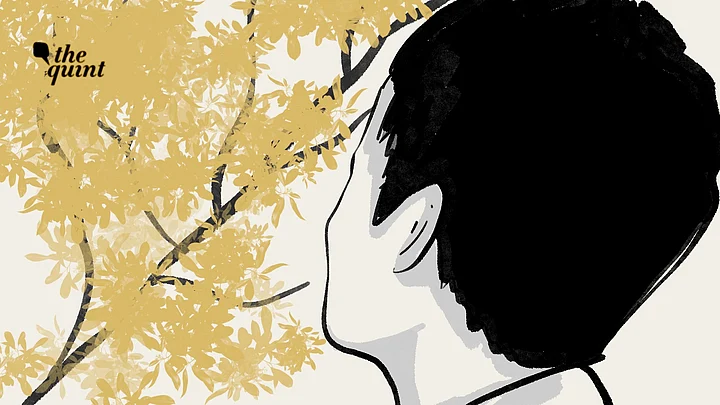Nagu* (name changed), 15, wanted to escape. He was tired of the everyday humiliation he faced for belonging to the Musahar caste in his village in Varanasi district. Two years ago, he was excited to go to Mumbai, in the hope of earning a few extra bucks for his family.
Little did he know that he would return with deep burn marks that have not faded even a year after he was rescued.
"The flames from welding plastic for 16 hours daily left marks on my hands and chest. They have still not faded. I got used to the burns after sometime."Nagu, 15, recued from child labour
Nagu and another teenage boy from his village were taken to Mumbai by an acquaintance who promised them a job and 'decent lifestyle'. Both the boys belong to the Musahar caste, one of the most oppressed Dalit groups in Uttar Pradesh.
"There were three other young boys like us who were working in the factory. Whenever the labour department officials raided our factory, one of the seths (bosses) would make us escape through the backdoor and lock us in a room above the 30th floor in an adjacent building. He would let us out after the officials left."Nagu, 15, Rescued from child Labour
The Child Labour (Prohibition & Regulation) Amendment Act, 2016, completely prohibits employment or work of children below 14 years and also prohibits employment of adolescents (14-18 years) in hazardous occupations and processes. Working in plastic workshops falls under the category of hazardous occupations.
'Borrowed Books From My Seth's Son Because I Liked to Read'
Nagu was enrolled in a government school in his village before he left for Mumbai. He was the first from his family who had access to basic education.
"In Mumbai, among the other boys, I was the only one who could read and write a little bit. My boss' son, who was also around my age, used to lend me his books sometimes. He would also tutor me occassionally."Nagu
Nagu returned home after a year in March 2020. Despite repeatedly begging his boss to bring him home, he initially refused till Nagu and the other boys threatened to completely stop work.
"When I went to Mumbai initially, I would miss my mother, my home everyday. I would cry to sleep. Eventually, it got better. I stopped missing home so much. I started liking the city and the lifestyle that people had in big cities. But, it was more than a year that I had been home. I wanted to visit my family for a week."Nagu
The same acquaintance who had taken Nagu to Mumbai the first time, brought him home for a week. While returning, they were joined by two other teenage boys from the village. But they were caught by the police at Varanasi railway station and sent to children's home. One of them was Rakesh*, 13.
"My father used to say my life too will be destroyed like his if I stayed back in the village. He wanted me to go to the big city, earn more money, improve my lifestyle. That is why when I saw Nagu returning to Mumbai, I also joined in. But I landed up in a dark cell at the Tenga Mod police station in Varanasi. I will not dare to step out to another city for work before I turn 18 now."Rakesh, 13, Rescued from Child Labour
Nagu and Rakesh were reunited with their families after all the formalities and verification done by the authorities at the Child and Women Welfare department. But, those couple of hours have left harrowing memories for Nagu and Rakesh's parents.
Rakesh's mother said, "I have promised myself that I will not send my son to work outside till he turns 18..." Rakesh interrupts his mother, "Now I want to study further. I want to go to high school and then go to a good college."
Back Home, But Devoid of Education For a Year
Rakesh's neighbours say he is very 'sharp' in studies. Nagu wants to return to Mumbai, but after completing his education. However, like all other children in the Dalit hamlet, Nagu and Rakesh too have not received education since the government schools were shut down due to COVID-19.
"None of us can afford to buy a smartphone here. How do you expect us to study online? Online education is for the privileged, not for poor people like us."Rakesh, 13, Rescued from Child Labour
According to a UNICEF report titled COVID-19 and School Closures: One Year of Education Disruption, published in March 2021, merely 8.5 percent students in India have access to the internet. According to the report, the main challenges to remote learning initiatives taken by governments and several NGOs after the COVID-19 pandemic have been the lack of access to technological devices and internet connectivity.
Both Nagu and Rakesh are enrolled under the Uttar Pradesh government's child welfare scheme where a child, rescued as a labourer, is given Rs 2,000 per month for his/her education. Nirupama Singh, Child Protection Officer of Varanasi district, told The Quint that the two children have been getting the money in their accounts, opened in consonance with their parents, since October 2020.
Mangla Prasad, a social activist who is working for the upliftment of the Musahar community in the area, said, "Often the money received under the sponsorship programme is utilised by families for their daily needs. Education is, unfortunately, not given a huge priority. They have to first think about feeding their stomachs."
Singh said there have been many children in the rural areas who have been impacted due to the digital divide in Uttar Pradesh.
One of Nagu's neighbours, who has recently fought the Panchayat elections against a Thakur candidate in the area said, "We talk about upliftment and assertion of Dalits. But how will a Musahar assert himself against the societal inequalities if they can't even access basic education?"
